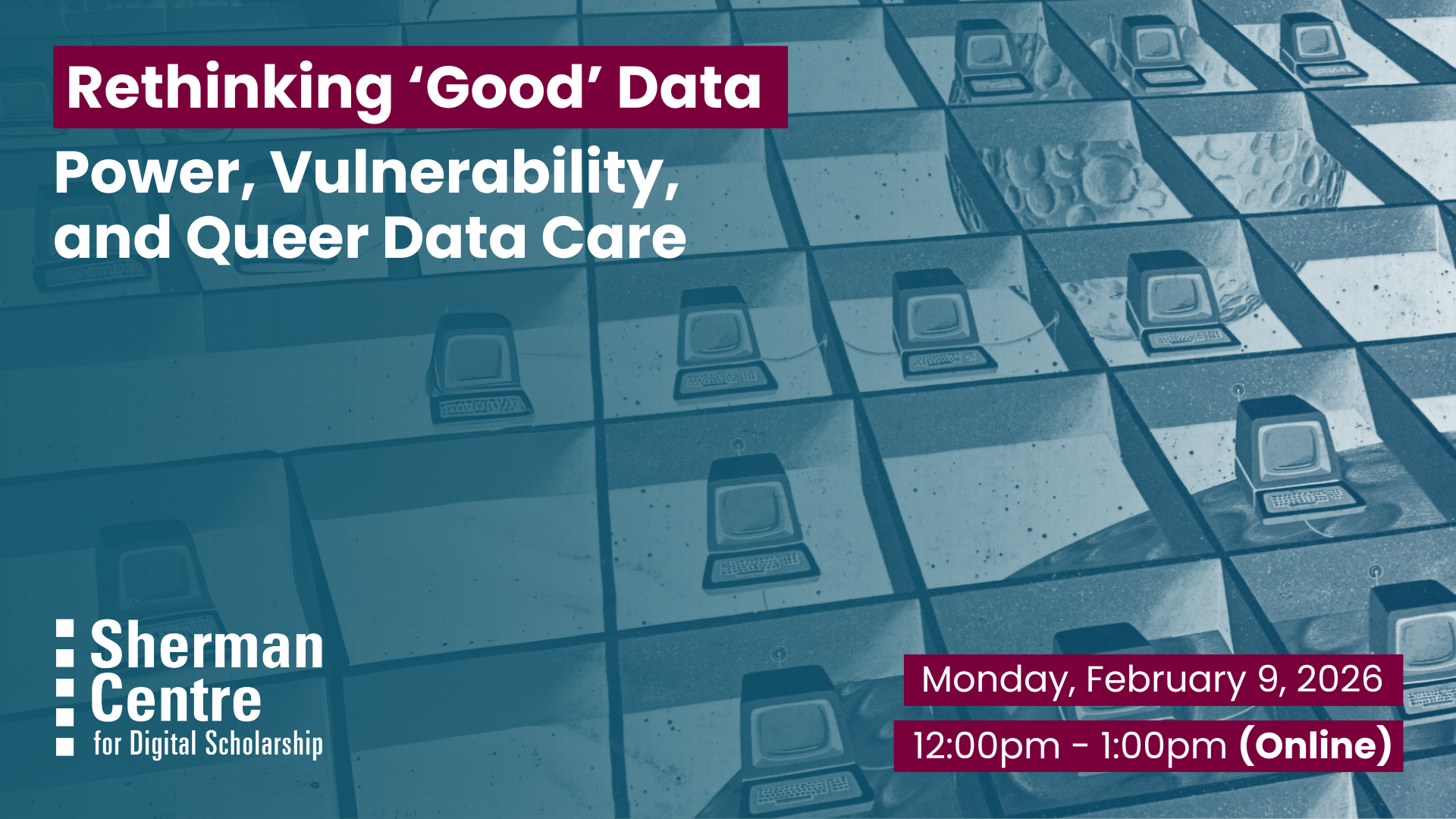
Rethinking “Good” Data: Power, Vulnerability and Queer Data Care
Data is never truly neutral. It is imagined, created, managed, and archived through the perspectives, values, and lived experiences of those who produce it. This workshop introduces queer data care, a feminist framework that challenges conventional understandings of “good” or “gold standard” research (Compton, 2018) and invites more ethical, accountable, and justice-oriented approaches to working with data.
Together, we will explore how data practices are shaped by, and can reinforce, existing power structures. We will then examine alternative strategies for collecting, maintaining, and sharing data that center care, collaboration, and community. Guided by questions such as: How is data maintained? Who controls access? Who is most at-risk during data collection? And how can we collect data that more effectively serves marginalized communities while remaining attentive to the ways data collection can also heighten their vulnerability? —this workshop will guide participants through a reflection on and reimagining of data practices through case studies.
In this workshop, we will:
- Analyze how social, political, and disciplinary contexts might shape data practices
- Identify how data practices can reinforce or resist structural power dynamics, particularly in relation to marginalized communities.
- Develop ethical, accountable, and community-centered approaches to data collection, maintenance, and access.
- Apply these methods and principles to your own research projects, and/or case studies.
This workshop is for anyone interested in thinking differently about data, such as graduate students, librarians, community researchers, data professionals, and others engaged in research, advocacy, or knowledge production. No formal experience with data is required. We all generate and interact with data in our everyday lives!
Workshop Preparation
None
Facilitator Bio
Alexis-Carlota Cochrane (she/they) is the Digital Scholarship Coordinator at the Sherman Centre for Digital Scholarship. In her role, she connects students, faculty, staff, and community members to resources, tools, and training that advance their digital research projects. Alexis is also PhD Candidate in the Department of Communication Studies and Media Arts at McMaster University. Her research interests include critical data studies, platform studies, data feminism, online harms, data justice, and digital humanities.
Danica Evering holds broad experience with research support, education, project management, advocacy, and knowledge translation; with fluency in social practice art, healthcare, community research, data, and systems development. Danica supports students, postdocs, faculty, and staff with RDM through the data lifecycle—Data Management Plans, storage and backup, data security, data sharing. With an MA in Media Studies from Concordia, they are interested in fostering RDM within curious scholars and disciplines.
Subhanya (she/her) brings a background of research in data justice, science and technology studies, and environmental humanities. She is currently thinking through participatory data design which allow for visualizations that are empowering for the end user.